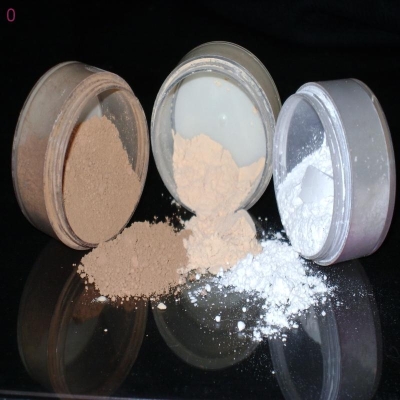Artificial sweeteners may make you eat more food
-
Last Update: 2021-02-17
-
Source: Internet
-
Author: User
Search more information of high quality chemicals, good prices and reliable suppliers, visit
www.echemi.com
years, artificial sweeteners have been able to lose weight, just like freshly opened sugar-free sodas, dissipated with bubbles.numerous studies have shown that sugar substitutes, although they have far fewer calories than sugar itself, can cause various forms of human metabolic problems, such as increased risk of diabetes, or long-term consumption, which can lead to weight gain. A recent study published in
Cell Metabolism
suggests that artificial sweeteners mimic hunger in the brain, causing some organisms to eat more food in search of energy.The study was carried out by
Charles Perkins Center
of the University of Sydney in collaboration with the
Garvan Institute of Medical Research
, which feeds fruit flies with yeast mixed with sucrose or synthetic sweetener sucralose, which is often used in a variety of low-calorie foods. After
5
days of feeding, the fruit flies in the sugar-free food group consumed more than
30% more calories than the
sucrose
group. When the sucralose was removed from the food, the group's calorie consumption decreased and returned to normal.researchers analyzed
probosciscisive response (PER)
, a technique essentially a taste test that can analyze which foods fruit flies are more interested in, and found that fruit flies are more motivated to eat real sugar when they eat sucralose. What's more, by recording the electrical activity of taste-sensitive sensors in fruit flies, it has also been shown that long-term consumption of sucralose actually increases insect sensitivity to sugar, which means they may feel more delicious. "Continued intake of artificial sweeteners allows animals to taste lower concentrations of sugar, and they may eat more sugar and produce a stronger physiological response,"
Greg Neely
, an associate professor of genomics and lead author of the study, explained in an email.By monitoring the expression and effects of compounds that affect appetite and energy regulation, including various enzymes and neurotransmitters,
Neely
and his colleagues identified a neural network in the brain that appears to be the cause of hunger induced by artificial sweeteners. In short, these compounds interfere with the ancient interactions that evolved between insulin, taste neurons, and the brain's reward circuits, which often drive us to seek life-sustaining foods in times of nutritional deficiency.
In the reward center of the brain, sweetness is integrated with energy levels," Neely
said in a separate press release. When the ratio of sweetness to energy is out of balance for a period of time, the brain recalibrates the relationship and increases total calorie consumption. "In other words, when the brain finds that sweetness doesn't match its actual calorie content, it makes us feel sugary and drives us to consume more food to compensate."
Neely
in a press release, added, "The path we found was part of a hunger response that makes us feel better about nutritious foods when we're hungry." Neely
's study found that their results didn't seem to be limited to fruit flies, and his team got the same result in mice: after
7
days of continuous intake of sucralose, their food consumption increased by
50 percent
, partly as a result of a neurotransmitter called neuropeptide
Y
that causes hunger on an empty stomach. But it is too early to extratroddes these conclusions on people. Although many previous studies have shown that artificial sweeteners make us eat more, for humans, the results shown in the literature are not very uniform. Studies of sweeteners, like other dietary studies, can easily be written as scientific reports of oil and vinegar., however, synthetic "sugar" can adversely affect metabolism through a variety of mechanisms, and the evidence is becoming more and more significant.
2014
study published in the journal
Nature
reported that artificial sweeteners promote heat absorption by altering the gut microbiome in mice and humans. Another recent study found that sucralose intake impairs the body's ability to process real sugar. As
Jabr
, author of
Scientific American
, reported earlier this year, overeating high-sugar, high-fat foods alters brain chemistry in reward systems, driving us to overeat.if artificial sweeteners can make food more delicious than usual, then we will lose the battle between willpower and Big Mac burgers. But that's not to say doctors should start recommending that people stop eating artificial sweeteners as a substitute for sugar, after all, eating too much sugar has its own problems.As
Neely
explains: "I think the basic information provided by this study is that we have learned that the artificial sweetener sucralose is not completely relevant to animals at least." Similarly, it has driven more researchers to explore how artificial sweeteners affect us as human beings. ”
This article is an English version of an article which is originally in the Chinese language on echemi.com and is provided for information purposes only.
This website makes no representation or warranty of any kind, either expressed or implied, as to the accuracy, completeness ownership or reliability of
the article or any translations thereof. If you have any concerns or complaints relating to the article, please send an email, providing a detailed
description of the concern or complaint, to
service@echemi.com. A staff member will contact you within 5 working days. Once verified, infringing content
will be removed immediately.







